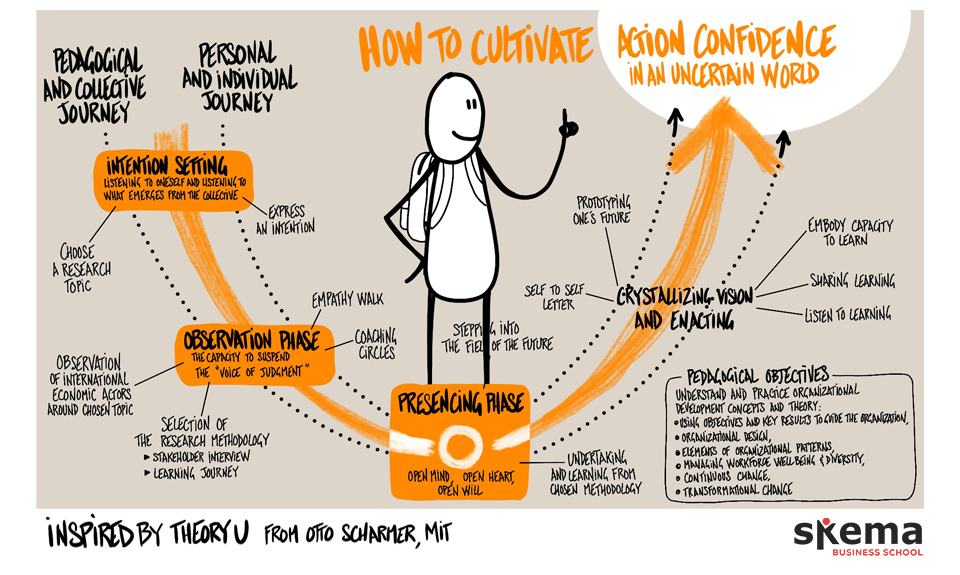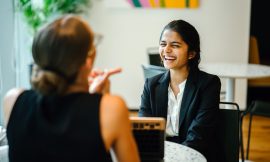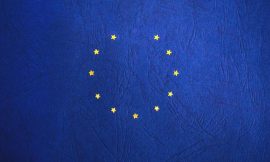On my personal journey, I have often wondered how I could look out for others and the planet, without losing sight of my own interests. Indeed, my doctoral research was on aligning private interests with the Common Good, or “Doing Well by Doing Good”. When I met Theory U by MIT’s Otto Scharmer wherein one’s personal interest is less well served by cynicism, hate and fear and better served by an open mind, open heart and open will, it changed my life. Shaped like the letter U, this theory offers a framework and steps to build action-confidence in the face of uncertainty. We adapted it to the context of our students around 4 steps: (Intention-setting / Observation / Presencing / Crystallizing Visionand Enacting).
In this unprecedented sanitary crisis, our students have found themselves deprived of many of the signals that have guided their lives, #isolation has combined with a mutant professional landscape.
So, when SKEMA invited me to teach Organizational Development to 140 students from a dozen nationalities, I realized how this theory could make a difference for them and decided to build a holistic approach based on two parallel journeys:
- A personal and individual journey
- A pedagogical and collective journey engaging with economic actors aimed at learning the different concepts of Organizational Development
- Intention setting: Listening to oneself and listening to what emerges from the collective. Students met 100% online and were invited to privately express an intention, as well as to choose a research topic to study over the 13 sessions of the course.
- Observation Phase: The capacity to suspend the “voice of judgment”. The observation phase started with an exercise aimed at acquiring this skill thanks to an “empathy walk” with someone quite different to them. Then, students were assigned to groups of 4-6 participants, where they engaged in “Coaching Circles” to facilitate trust-building as well as to develop Active Listening. In parallel, students engaged in an observation exercise with collectively more than 400 international economic actors around their chosen corpus of knowledge and selected their Research methodology (Stakeholder Interview or Learning journey).
- Presencing Phase: “Open Mind, Open Heart, Open Will” rather than default thinking. Next, we turned to the “presencing phase”. To help identify “preferred futures” out of their project instead of using Scenario Planning, Strategic Planning or Brainstorming, students were invited to follow an exercise called “Stepping into the Field of the Future.“
- Crystallizing Vision and Enacting: Then came the last step in which Students were first invited to write a letter, either from the “Future Self” experienced in the previous exercise to current self, or the more classic exercise of writing to one’s future self. Futhermore, students prototyped what their futures could look like, received feedback and took first steps.
Finally, we lived a fulfilling collective rendering of projects during a huge online session. 52% of my students described the learning exercise as life changing and even 97% estimated the methodology highly transferable to their professional and personal lives.
It gives us confidence to extend this experience to a full year-long program where students arrive with an intention to change their career. Thanks to these parallel journeys and the positive “social field,” we offer them a powerful framework, a supportive context and targeted practices as they engage on a path to change their lives.






